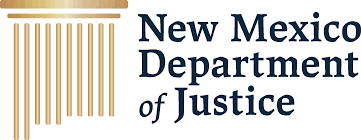Santa Fe, N. M – School boards, city councils, county commissions and other public bodies that hold public meetings under the Open Meetings Act (OMA) and allow individuals to attend virtually may not implement restrictive requirements on people wishing to attend and listen to proceedings. The ruling comes from a new opinion released Thursday, October 17, 2024, by the New Mexico Department of Justice (NMDOJ).
The NMDOJ issued its final disposition letter after the New Mexico Foundation for Open Government filed a complaint with the Department alleging the Clovis Municipal School District was improperly restricting virtual access to its public meetings by unjustifiably requiring attendees to always keep their cameras on and identify themselves, or risk expulsion from the meeting. Jelayne Curtis, a resident in the school district, filed a similar complaint.
OMA provides that all persons desiring to attend a public body meeting shall be permitted to attend and listen to the proceedings. In its opinion, the NMDOJ reiterated that the intent of OMA “is to protect the public and ensure their access to such meetings. For public bodies to tighten this standard and create limitations to such access is a violation of the law.” NMDOJ’s letter instructs the School Board to remove the restrictive requirements from their agendas and practice and allow virtual access to whomever wishes to join whether they have their cameras on and identify themselves or not.
“FOG is pleased that the NMDOJ agreed with our assessment that the Clovis School Board’s policy of requiring attendees at meetings to keep their cameras and identify themselves, or risk expulsion from the meeting, is a violation of the Open Meetings Act (OMA),” Amanda Lavin, FOG legal director, said.
NMFOG sent a letter to the School Board before filing the complaint, but never received a response. Following the School Board’s lack of response, NMFOG and Ms. Curtis filed complaints with NMDOJ, requesting a formal investigation into the School Board’s policy, which purportedly was put into place to “uphold the integrity and decorum” of each session and to “discourage individuals from attending under a false identity.”
The NMDOJ’s disposition letter noted that perhaps the School Board had confused attendance at a meeting with the right to public comment. There is no provision in the OMA that requires a public body to allow for public comment. However, it is the policy of many boards to permit the public to speak directly to officials during a meeting during a public comment section and require that the speakers identify themselves.
The NMDOJ noted that future complaints related to the Clovis School Board will be examined by the Department with increased scrutiny, and that the Department may conduct further investigation into the Board’s training and policies to determine whether additional intervention is needed, including a possible enforcement action to ensure government accountability.

